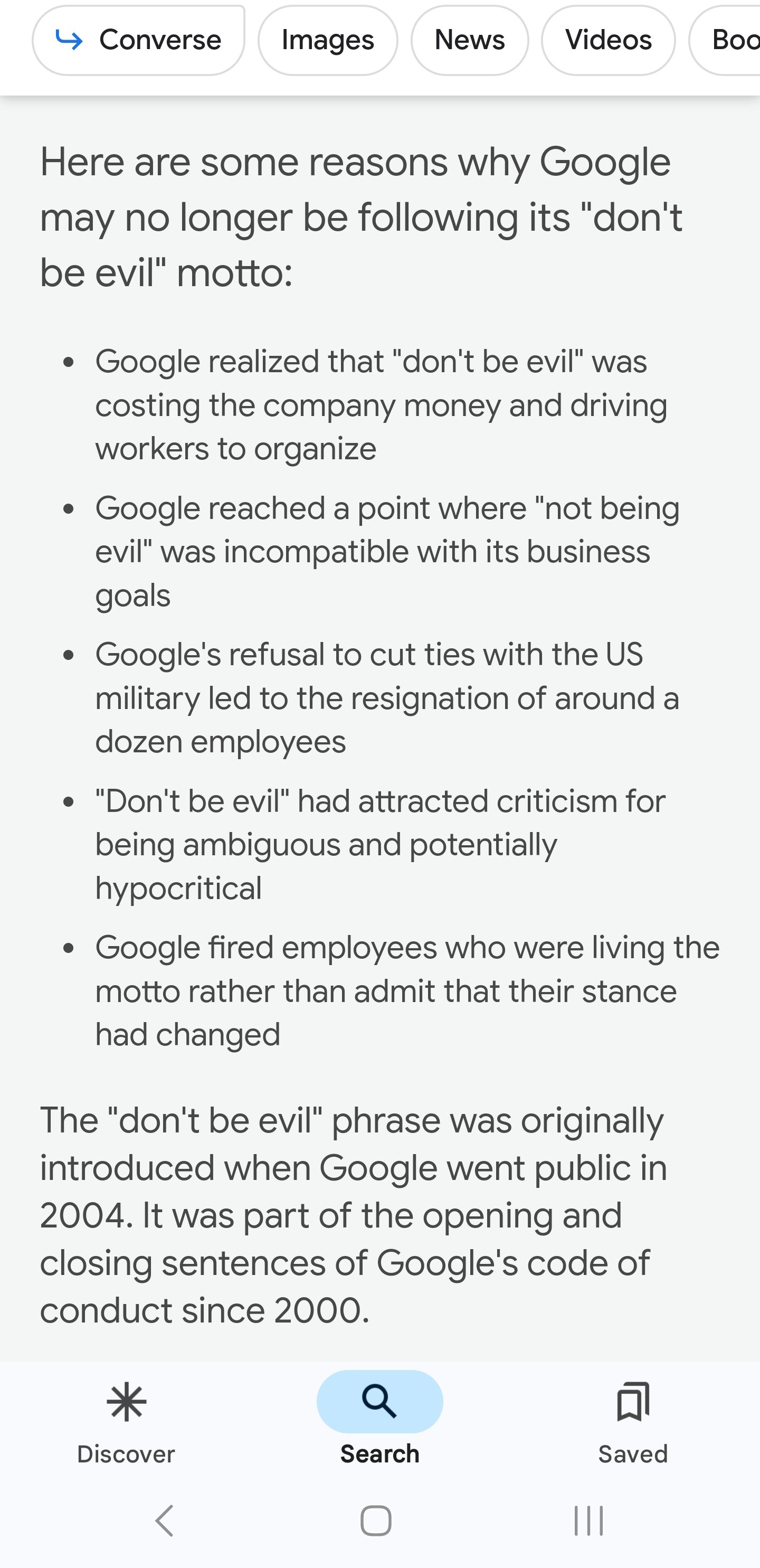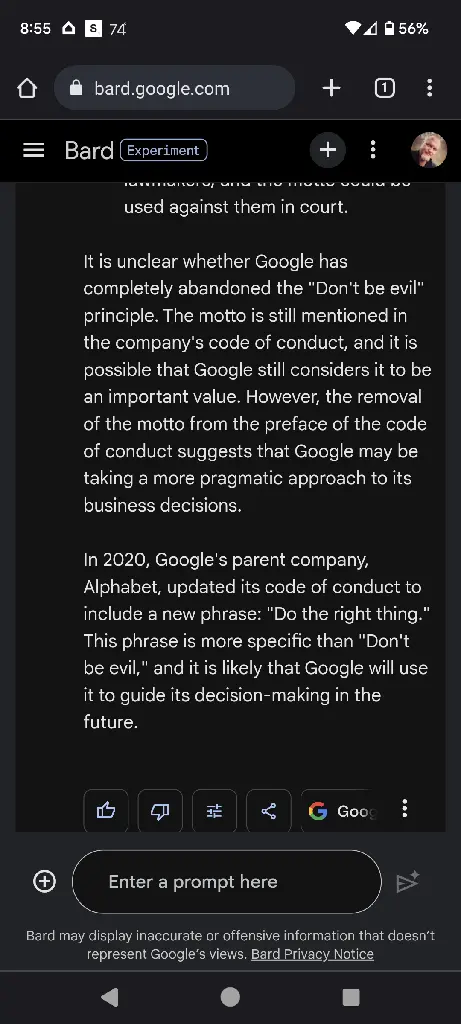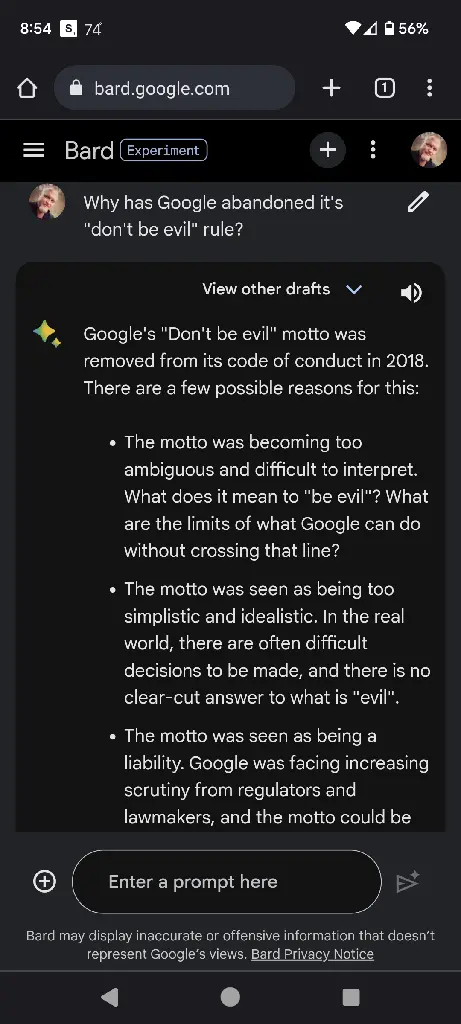We can help derp about capitalism all we want but this wouldn't change in a government run program. An organization is only as ethical as the people that make it up. The military question was an inflection point where the organization was really forced to deal with the question of how to define evil.
Suddenly every person in that organization was forced to answer some questions. Is the existence of a military evil? Is it evil if I don't directly support those solutions? What if something I build is used to develop it indirectly? Even if it is not, am I now complicit?
Now, I'm a Soldier so I have a massive bias here. I personally cannot see why anyone would intentionally want to contribute to us getting killed or losing a war. Tech products are already used in the process. Toyota is not complicit in terrorism just because their trucks are the trucks of choice for insurgent logistics. That being said, if they started accepting contracts with them, there would be an issue.
A lot of it comes down to the thoughts on the war on terror at the time. The funny thing is that the solutions that they built are focused on Eastern Europe right now in a conflict that most people support and were not completed in time to do counter insurgency.
The funny thing about the COIN fight is that information products simply made things more accurate with better intelligence. It meant less terrorism due to less insurgents and less civilian casualties resulting in blowback. If poorer information resulted in higher civilian casualties, are the pacifists complicit in that?
Again, I'm biased so my perspective is one of this issue being a detractor to doing my job better. In the end, defining evil is not black and white, even if you could theoretically come to a specific answer for a specific circumstance with the magical power of all the knowledge in the world. It broke the culture of the company.





